
Vakuutusiltapäivä 28.11.2025
Helsingin, Turun ja Tampereen yliopistot järjestävät yhdessä vakuutusiltapäiviä. Seuraava tilaisuus on Helsingin yliopiston kampuksella 28.11.2025.
AAE response to EIOPA’s first stress test for Pensions in Europe |
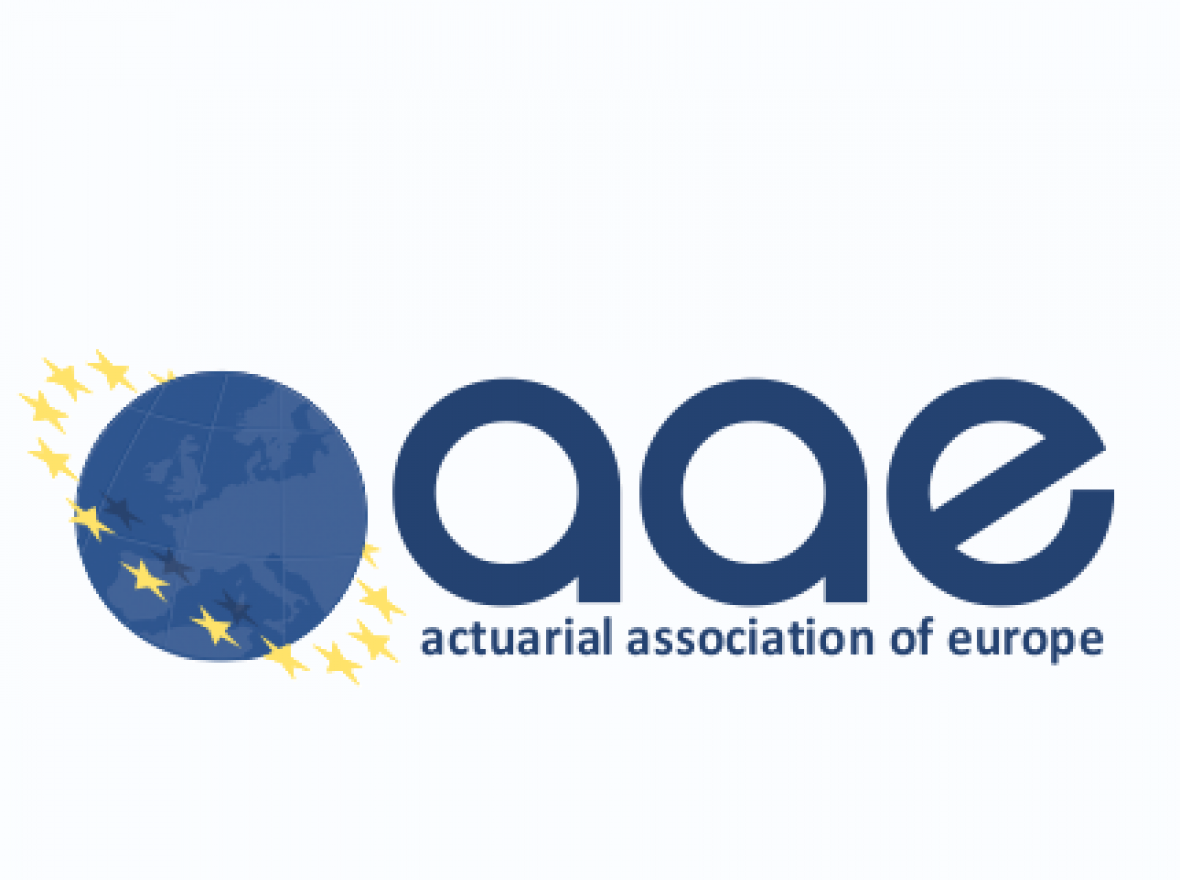 |

Brussels, 4 February 2016:
The Actuarial Association of Europe welcomes the recent publication of the results of EIOPA’s first stress test for occupational pensions in Europe.
Pensions is an activity over a very long period of time. Many assumptions are made in order to produce an expected outcome. As actuaries we promote and support presenting - in addition to the expectation - the effect of adverse scenarios. That is one of the main achievements of this first European stress test.
As expected, given the magnitude of the financial shocks specified by EIOPA, the stress test results show that if these shocks occurred there would be a significant increase in the deficit in defined benefits schemes, particularly when aggregated on the common methodology adopted by EIOPA. The approach taken to dealing with the deficits would be addressed in accordance with the regulatory framework of each member state, and could include increased contributions (from sponsors and members), extended recovery periods, revised investment strategies and benefit reductions. EIOPA do not consider that DB IORPs pose a systemic risk to the EU, although it is clear that increased contributions and/or reduced benefits would have some impact on the economy of member states where these arose.
Philip Shier, Chairperson of the AAE, said “Pensions are part of the labour relationship between employer and employees, and it is essential that both employers and employees have good information on which to agree the pension deal. A common understanding of the risks inherent in the pension scheme, and agreement as to how these should be managed, can be facilitated by appropriate stress tests. Defined benefit IORPs should undertake their own stress tests, reflecting their specific features, as part of their risk assessment (this is likely to become mandatory under the revised IORP Directive).”
Falco Valkenburg, Chairperson of the AAE Pensions Committee commented: “We agree with the way forward as proposed by EIOPA, especially to continue to work on a common market-sensitive methodology. We are happy to contribute to this process and have already made some suggestions in our paper “Clarity before Solvency”. We think that it would be worthwhile not only to look at improvement of valuation methodology, but also to work on more forward looking methods.”

Helsingin, Turun ja Tampereen yliopistot järjestävät yhdessä vakuutusiltapäiviä. Seuraava tilaisuus on Helsingin yliopiston kampuksella 28.11.2025.

Vakuutusmatematiikan sovellusten SHV-koe. Viimeinen ilmoittautumispäivä 19.10.2025

Aktuaaritoiminnan kehittämissäätiön syysseminaari OP Vallilan auditoriossa Helsingissä.

Vakuutustiedon Kehittämissäätiön tarkoituksena on tukea vakuutusalaan liittyvän tiedon ja osaamisen kehittymistä. Säätiö jakaa apurahoja tieteelliseen tutkimukseen, opinnäytetöihin ja tietokirjojen kirjoittamiseen.

Nordean auditorio

Eläketurvakeskus hakee matemaatikkoa.
Hakuaika päättyy: 05.10.2025

Vakavaraisuuden SHV-koe. Viimeinen ilmoittautumispäivä 24.08.2025

LähiTapiola hakee Matemaatikkoa Vahinkovakuutuksen aktuaaripalveluihin.
Hakuaika päättyy 18.09.2025.

Fennia + Teams
Esitelmänä "Ilmastoriskien stressitestaus"
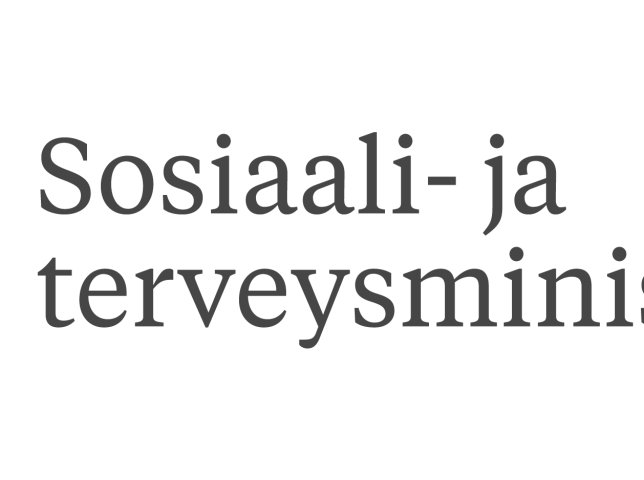
STM pyytää kiinnostuneita ilmoittamaan halukkuudestaan SHV-lautakuntaan.
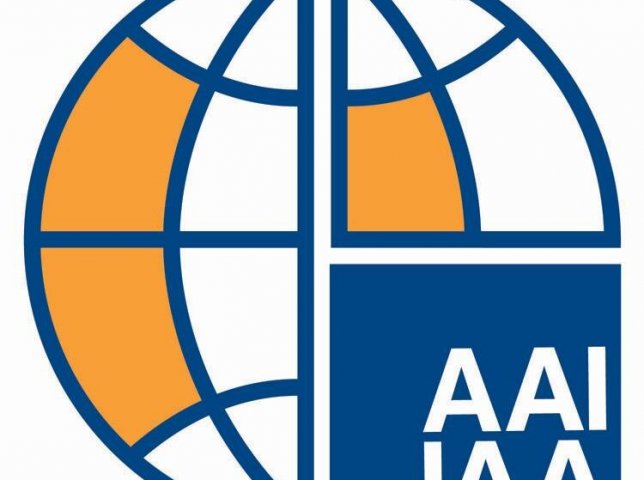
Explore the cutting edge of actuarial science with IAA President, Bozenna Hinton and her guests at our free webinar celebrating International Actuaries Day.

Tieteiden talo + Teams
Esitelmänä "Tekoälyasetuksen haasteet ja mahdollisuudet aktuaareille"

In May 2025, the IAA Sections will host its 1st event in South America, "JoCo São Paulo 2025" at the invitation of the Instituto Brasileiro de Atuária (IBA).

Helsingin, Turun ja Tampereen yliopistot järjestävät yhdessä vakuutusiltapäiviä. Seuraava tilaisuus on Tampereen yliopiston kampuksella 16.05.2025 klo 12:30 alkaen.

Teams
Esitelminä viimeisimmät SHV-työt

Kirjanpidon ja laskentatoimen SHV-koe. Viimeinen ilmoittautumispäivä 14.04.2025

4th ACCC Impact Week, 22.-24.04.2024
Sofia Cultural Centre, Vuosaari, Helsinki

Veritas, Turku + Teams.
Esitelmän aihe: Liikekulujen käsittely ja niiden kattaminen työeläkeyhtiössä

Sateisuuden muutoksia Suomen maakunnissa -raportti asiantuntijoiden käsittelyssä julkaisutilaisuus pidetään 20.3.2025

Vakuutuslainsäädännön SHV-koe. Viimeinen ilmoittautumispäivä 12.02.2025

Vuosikokousesitelmä: Kvanttitietokoneet

EY kutsuu Suomen Aktuaariyhdistyksen jäsenet osallistumaan aamiaisseminaariin toimistolleen (Korkeavuorenkatu 32-34, 00130 Helsinki) keskiviikkona 29.1.2025 kello 9.00 – 11.00.

Työeläkeyhtiö Elo + Teams.
Esitelmän aiheena kuolevuus

Helsingin, Turun ja Tampereen yliopistot järjestävät yhdessä vakuutusiltapäiviä. Seuraava tilaisuus on Turun yliopiston kampuksella 13.12.2024 klo 13 alkaen.

Aktuaaritoiminnan kehittämissäätiön syysseminaari OP Vallilan auditoriossa Helsingissä.
Mikko Kuuselan työelämäprofessuuria jatkettu kolmella vuodella.

Tieteidentalo + TEAMS
Esitelmät: Jari Niittuinperä - CDP-muutosesitys

Hae Vakuutustiedon Kehittämissäätiön apurahaa tutkimukselle, opinnäytetyölle tai tietokirjalle 15.8.–15.10.2024.

In September 2024, the IAA will have its semi-annual meetings in Tallinn, and in conjunction with the IAA meetings, EAL will celebrate its 25th anniversary with a Conference on September 27th, 2024, in Tallinn.

Tieteidentalo + TEAMS
Esitelmät: Jari Kannisto: Tilastotietoa työkyvyttömyyseläkkeistä
Meeri Kesälä: Ajankohtaista TyEL:n työkyvyttömyyseläkkeiden vakuutustekniikasta

Scandinavian Actuarial Conference at the University of Copenhagen 14th - 16th of August.
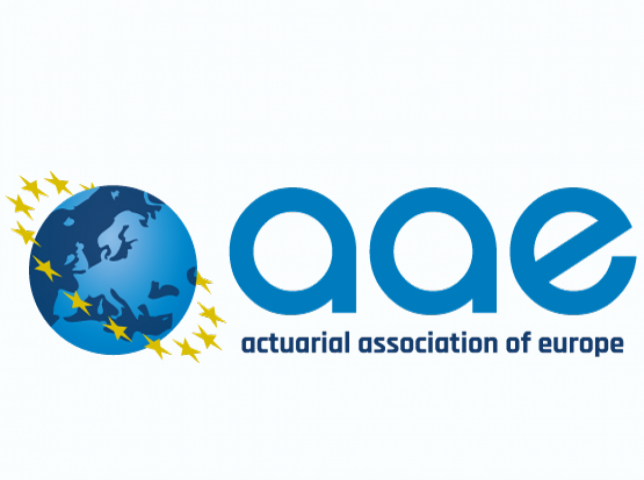
AAE:n on valinnut uuden puheenjohtajiston ylimääräisessä yleiskokouksessa 04.07.2024.

TEAMS
Esitelmät: viimeisimmät SHV-työaiheet

EY + TEAMS
Esitelmä: Dr. Jane Toothill (JBA Risk Management) - Quantifying flood risk in Finland and in the Nordics

Helsingin, Turun ja Tampereen yliopistot järjestävät yhdessä vakuutusiltapäiviä. Seuraava tilaisuus on Helsingin yliopiston kampuksella 17.05.2024 klo 13 alkaen.

LähiTapiola + TEAMS
Esitelmä: AAE ja right to be forgotten (RTBF)

The successful format of CONVENTION A will be continued in 2024 with a special focus on Europe!
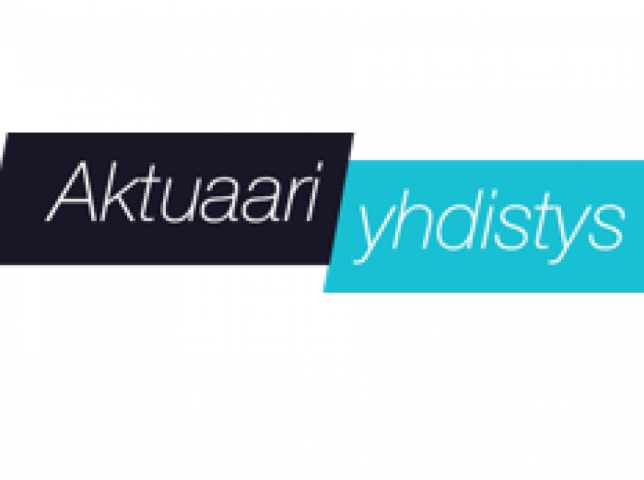

Vuosikokousesitelmä: Charles Cowling, IAA
Ilmoittautuminen 18.02.2024 klo 20:00 mennessä.


Vain TEAMS
Esitelmä: Uusi vakuutusalan elvytys- ja kriisinratkaisudirektiivi-ehdotus (IRRD) Suomen näkökulmasta

Helsingin, Turun ja Tampereen yliopistot järjestävät yhdessä vakuutusiltapäiviä. Seuraava tilaisuus on Tampereen yliopiston kampuksella 24.11. klo 13 alkaen.

Vakuutusmatematiikan sovellusten SHV-koe. Viimeinen ilmoittautumispäivä 22.10.2023

Aktuaaritoiminnan kehittämissäätiön syysseminaari OP Vallilan auditoriossa Helsingissä.

Following a series of successful webinars on current aspects regarding Social Security, the Actuarial Association of Europe, AAE, has developed a follow-up activity to provide a forum for interested actuaries and stakeholders.

Teams
Esitelmä: Vahinkovakuutuksen inflaatiotutkimus / Fiva

EAA:n webinaari aiheesta: How an Imaginary Pension Fund Can Help Steer a PAYG System
Aika 10.10.2022, klo 10:00-12:00 CEST

Vakavaraisuuden SHV-koe. Viimeinen ilmoittautumispäivä 27.08.2023

Tieteiden talo, sali 505
Esitelmä: Havaintoja Suomen väestökuolevuudesta K2021-mallin ja sen jälkeisen datan valossa

The Actuarial Association of Europe (AAE) will host the next European Actuarial Day on 27 June 2023. The virtual one-day conference will again offer a unique CPD opportunity for all interested actuaries and risk experts in Europe.

ETK + Teams
Esitelmät: FSAP 2 -standardin päivitys / ICA 2023 kuulumisia sekä eläkejärjestelmien kustannusneutraali yhdistäminen

Helsingin, Turun ja Tampereen yliopistot järjestävät yhdessä vakuutusiltapäiviä. Seuraava tilaisuus on Turun yliopiston kampuksella 19.05. klo 13 alkaen.

Teams-kokous
Esitelmä: Barbara D´ambrogi-Ola - IAA

Suomen Aktuaariyhdistys suunnittelee yhteistyötä Suomen Akatemian lippulaivaohjelma Atmosphere and Climate Competence Center (ACCC) kanssa. ACCC:n tarkoituksena on erityisesti lisätä ymmärrystä ilmastonmuutoksesta ja ilmanlaadun heikkenemisestä.

Teams-kokous
Esitelmä: Jatkuva kouluttautuminen ja CERA tutkinto

Vakuutuslainsäädännön SHV-koe. Viimeinen ilmoittautumispäivä 15.02.2023

Vuosikokousesitelmä: Risto Murto - Syntyvyys Suomessa

Paikka EY (Töölö)
Esitelmä: Inflaatio - Mervi Toivanen

Helsingin, Turun ja Tampereen yliopistot alkavat järjestää yhdessä vakuutusiltapäiviä. Ensimmäinen tilaisuus on Helsingin yliopiston Kumpulan kampuksella 2.12. klo 13 alkaen.

Vakuutusmatematiikan sovellusten SHV-koe. Viimeinen ilmoittautumispäivä 23.10.2022

Yhdistyksen syysseminaari LähiTapiolan auditoriossa Espoossa. Aiheena "Vakuutus on välttämättömyyshyödyke(?)".

Suomen Aktuaariyhdistys osallistuu aktiivisesti Kansainvälisen Aktuaariyhdistyksen (IAA) ja Euroopan Aktuaariyhdistyksen (AAE) toimintaan erilaisten työryhmien kautta.

Paikka ETK (Kalasatama)
Esitelmä: YEL-vakuutuksen taustoista ja työtulon määräytymisestä - Eeva Poutiainen

Liettuan aktuaariyhdistyksen webinaari aiheesta: Clustering-based optimization in fraud detection classifier training.
Aika 20.10.2022, klo 17:00-18:30

Paikka LäHiTapiola (Revontulenkuja 1, Espoo)
Esitelmä: Katastrofiriskien mallintaminen moniulotteisessa tilanteessa, Jaakko Lehtomaa

Vakavaraisuuden SHV-koe. Viimeinen ilmoittautumispäivä 28.08.2022

Latvian aktuaariyhdistyksen webinaari aiheesta: Quality of Life and it’s measuring models, sustainability, well-being.
Aika 23.09.2022, klo 10:00-13:00


Nordea, Vallila
Esitelmä: IFRS17 tilinpäätösstandardista - Teija Sonni-Kautto

Liettuan aktuaariyhdistyksen webinaari aiheesta: Rise of MLOps: Machine Learning at Scale.
Aika 24.8.2022, klo 17:00-18:00

The Young Actuaries World Cup (YAWC) is a friendly global competition between young actuaries under 35.

The AAE Professionalism Committee will be organising a webinar on ‘Sustainability and the role of the actuary - a professionalism perspective' on Thursday 30 June 2022 from 10.00-12.00 CEST.

Liettuan aktuaariyhdistyksen webinaari aiheesta: Sustainability and insurance.
Aika 23.5.2022, klo 17:00-18:00

Kirjanpidon ja laskentatoimen SHV-koe. Viimeinen ilmoittautumispäivä 18.4.2022

On 12 May 2022, the EAA e-Conference on "Data Science & Data Ethics" will take place live and virtually. The programme will combine keynote speeches from well-known experts and selected talks from professionals through a CALL FOR PAPERS.

The updated Cyber Risk Toolkit from the American Academy of Actuaries is a good “first stop” for anyone seeking clear, topical explanations of cyber risk and cyber insurance issues.

Helsingin yliopisto, Kumpulan kampus klo 14:15-16:15

Lehdistötiedote Aktuaariyhdistyksen 100-vuotisesta taipaleesta.
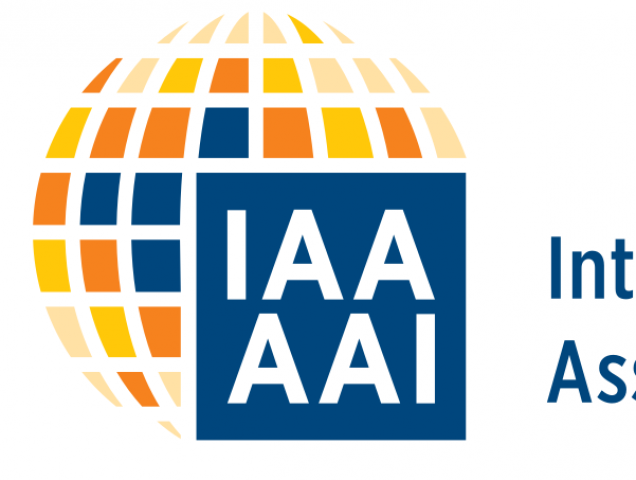


Suomen Aktuaariyhdistys täyttää 100 vuotta 21.4.2022. Juhlistamme tapahtumaa 28.04.2022 Ravintola Palacessa.

”Aktuaarit – 100 vuotta eettistä toimintaa” – Suomen Aktuaariyhdistys juhlistaa 100-vuotiasta taivaltaan 28.4.2020. Osana 100-vuotisjuhlallisuuksia yhdistys järjestää seminaarin aktuaarien toiminnan eettisyydestä.

Practical modelling, Free webinar for members of Baltic, Poland, Finland Actuarial Associations.

TEAMS-kokous, klo 15:00-17:00.
Esitelmä: Ilmastonmuutos – ajankohtaiskatsaus ja yhteenveto sääntelykehitykseen vahinkovakuutuksen näkökulmasta

Vakuutuslainsäädännön SHV-koe. Viimeinen ilmoittautumispäivä 16.2.2022

The AAE Pensions Committee will be organising a webinar on ‘Pension Tracking System (PTS), challenges ahead' on Wednesday 9 March 2022 from 10.00-12.00 CET.

Keskustelutilaisuus - Pricing Insurance Derivatives Under Fractional Stochastic Models
Foad Shokrollahi, Vaasan yliopisto

Online-kokous
Vuosikokousesitelmä: Alexander Stubb - European integration process and the mobility of professionals in Europe

The AAE Risk Management Committee will be organising a webinar on 'Sustainability and Climate Change – what does it mean for risk management in Insurance and Pensions?' on Tuesday 1 February 2022 from 10.00-12.00 CET.

Huonontuneesta koronatilanteesta johtuen sekä kuukausikokous, että aftermath on peruttu. Asiaan palataan tilanteen parantuessa.

The AAE will be organizing an AAE Roundtable on “Solvency II Review: Expectations towards Actuaries in a Post-pandemic World" on 30 November 2021 from 10:00-11:30 CET.

Vakuutusmatematiikan sovellusten SHV-koe. Viimeinen ilmoittautumispäivä 24.10.2021

Yhdistyksen syysseminaari OP Vallilan auditoriossa sekä online, alkaen klo 13. Aiheena Open Insurance.

TEAMS-kokous, klo 14:30-16:30.

Vakavaraisuuden SHV-koe. Viimeinen ilmoittautumispäivä 22.8.2021

TEAMS-kokous, klo 15:30-17:30.

Want to know more about the MRA? Then make sure to register for the AAE webinar on MRA - 18 June 2021

Kuolevuusseminaari ja kuukausikokous, klo 12:45-17:00.

The CERA Global Risk Conference 2021, is taking place online over four days from Monday 14 to Thursday 17 June.

AAE Cash Flow approach TF - call for volunteers - deadline: 12 June 2021

On 2 and 3 June 2021, the Actuarial Association of Europe in cooperation with the European Actuarial Academy will hold the first European Actuarial Days fully online.

Kirjanpidon ja laskentatoimen SHV-koe. Viimeinen ilmoittautumispäivä 19.4.2021
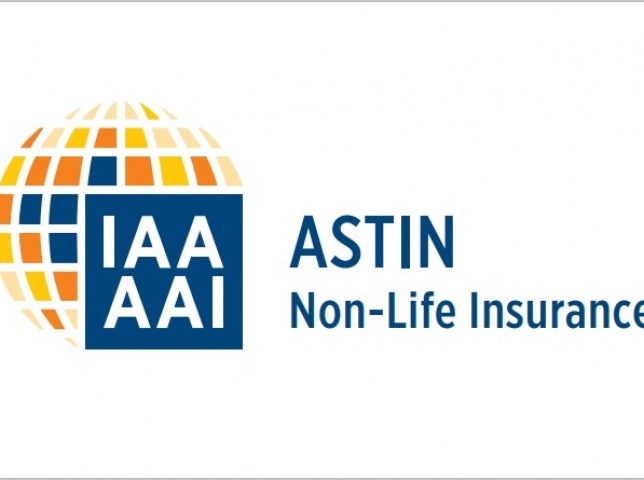
ASTIN 2021 Online Colloquium 18. - 21.05.2021

TEAMS-kokous, klo 14:30-16:30. Esitelmä: Challenges in Nordic insurance market - Brad Ashton (Aon)

TEAMS-kokous, klo 14:30-16:30.
Esitelmä: Aktuaaristandardit ja niiden hyödyntäminen aktuaarin työssä.

Vakuutuslainsäädännön SHV-koe. Viimeinen ilmoittautumispäivä 3.2.2021

AAE virtual events in first half of 2021
CERA Global Risk Conference - call for presentations
IAA - Introduction to Climate-Related Scenarios
New issue of The European Actuary magazine

Online-kokous
Vuosikokousesitelmä: Martti Hetemäki - Julkisen talouden kestävyyden aleneminen syntyvyyden valossa

Tarkkailijaksi IAA:n komiteaan
Yhdistyksen vuosikokous

The AAE will be organising a webinar on ‘Implementing and auditing the new AAE Syllabus requirements’ on Thursday 4 February 2021 from 11.00-13.00 CET.

IAA:n foorumit
Actuaires du Monde - Actuaries of the World

Yhdistyksen vuosikokous
Uudet eettiset periaatteet
Edustaja - AAE:n Insurance Committee

Työpaikkailmoitus - Matemaatikko, Veritas
Päivitetyt SHV-tutkintovaatimukset
Ideoita vuodelle 2021?
Syyswebinaarin tallenne

TEAMS-kokous, klo 14:30-16:30. Esitelmänä Jukka Rantala: Yhteistakuukaavailut aktuaarin näkökulmasta.

The AAE will be organising a webinar on ‘Current topics in Risk Management’ on Tuesday 8 December 2020 from 11.00-13.00 CET.

IAA:n sektioiden jäsenyydet
Muistutus: Syyswebinaarin palautelomake
Kuukausikokous 8.12. klo 14:30 - 16:30

Onko riskienhallinnasta hyötyä vai haittaa systeemisiin riskeihin varautumisessa?

Uudet eettiset periaatteet esiteltiin yhdityksen kokouksessa 16.9.2020. Pyydämme jäseniä tutustumaan materiaaliin ja antamaan palautetta 30.10.2020 mennessä.

Yhdistyksen vuosikokous
Verkkotilaisuus työurien pidentämistä sukupuolinäkökulmasta

TEAMS-kokous, klo 14:30-16:30. Esitelmä: Kestävyysriskit & kestävän rahoituksen hankkeet



EAA -European Actuarial Academy järjestää Helsingissä yhteistyössä SAY:n kanssa online-seminaarin 21.-22.9.2020 aiheesta Modern Product Development in Life.


The AAE will be organising a webinar on the topic of ‘Update on Insurance Topics’ on Tuesday 15 September 2020 from 11.00-13.00 CET. (Suomen aikaa klo 12.00-14.00)
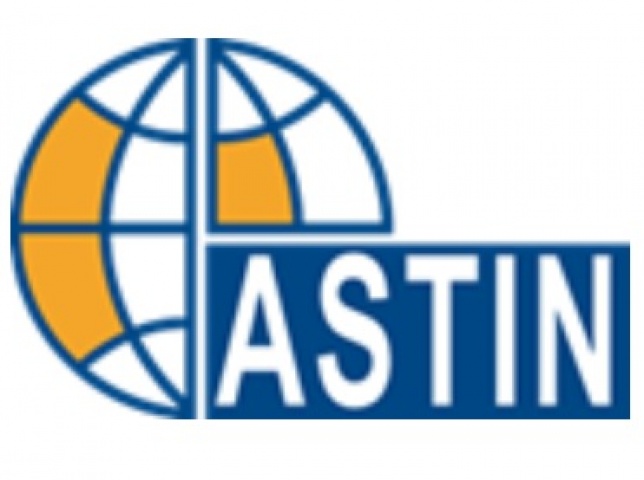
Due to Covid-19 Finnish/Baltic ASTIN Chapter one day meeting in Helsinki has been cancelled until further notice





Kirjanpidon ja laskentatoimen SHV-koe. SIIRRETTY ELOKUULLE! Viimeinen ilmoittautumispäivä 11.7.2020
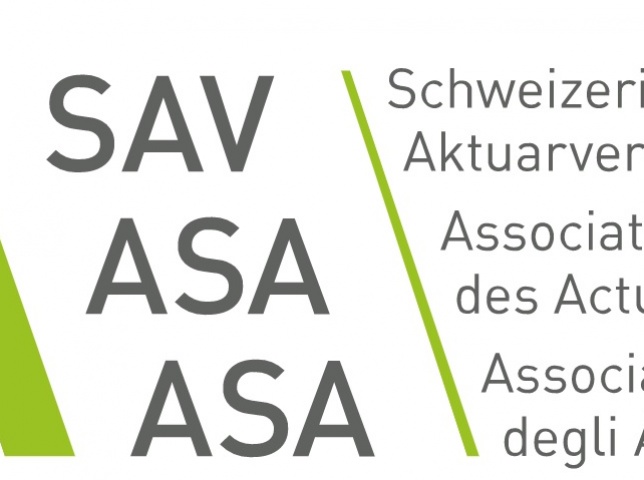
This year’s topic is a very hot one for actuaries: “Machine Learning in Insurance”

Toukokuun kuukausikokouksessa esitellään vuosikokouksessa palkitut SHV- ja pro gradu -työt.

Actuarial Association of Europe announces resignation of Chief Executive Cecilia Thorn.

Varma, Salmisaarenranta 11, Helsinki
Vuosikokousesitelmän aiheena "Solvency II is Good for You!".

Professionalism Committee Chair Christophe Heck will host a webinar on professional judgement on 11th of February.

Kooste kansainvälisten työryhmien tärkeimmistä tapahtumista.

Ilmarinen, Porkkalankatu 1, Helsinki Kuukausikokouksen aiheena on Kansainvälisen Aktuaariyhdistyksen (IAA) ja Eurooppalaisen Aktuaariyhdistyksen (AAE) toiminta ja niiden tuomat edut.

OP Vallila, Gebhardinaukio 1, Helsinki
Aktuaaritoiminnan kehittämissäätiön syysseminaarin aiheena on EKP:n määrällisen elvytyksen syyt ja seuraukset.

Helsingin yliopiston Kumpulan kampus, Pietari Kalmin katu 5, Helsinki Kuukausikokouksen aiheena aktuaarin ammatti sekä esitellään keväällä palkitut SHV- ja pro gradu -työt.

Varma, Salmisaarenranta 11, Helsinki SAY järjestää yhteistyössä EY:n ja Microsoftin kanssa Koneoppimistyöpajan. Tapahtuman aluksi pidetään kuukausikokous.

The theme of the week will be: “Insurance Data Science: Use and Value of Unusual Data.”

The overall theme of the ECA 2019 is “Actuary 2020 – A profession on the move”.

Norwegian Society of Actuaries järjestää 27.5.2019 seminaarin aiheesta Insurance Linked Securities.

AAE has published a blog by Esko Kivisaari: "What would be a larger understatement than to say that we are living a critical year in the EU?"

Mandatum Life, Hietalahdenranta 9, Helsinki
Suomen Aktuaariyhdistys järjestää neljännen kuolevuusseminaarinsa 8.5.2019. Seminaarin jälkeen Postmortal Aftermath Klaus K loungessa!

LähiTapiola, Revontulenkuja 1, Espoo Kuukausikokouksen esitelmästä vastaa Eeva Poutiainen aiheena "Pohdintaa YEL-vakuutuksen sisältämistä etuuksista vakuutusmatemaattiselta kannalta – Mitä YEL-vakuutuksen kaltainen vakuutusturva voisi maksaa?"

Applications are now open for the VIII St. Petersburg Spring School in Risk Management, Insurance, and Finance. Spring school is held on March 21-23, 2019.

Nordea, Aleksis Kiven katu 7, Helsinki
Vuosikokousesitelmän aiheena "Finanssiryhmän riskienhallinnan erityiskysymyksiä -mittamista vai manageerausta?" puhujana OP Ryhmän riskienhallintajohtaja Markku Pehkonen.

AAE has published a press release in face of EU Parliamentary Election and the New Commission.

The European Congress of Actuaries (ECA) 2019 will present an exciting program including daily plenary sessions with well-known invited speakers as well as experts from all over Europe who will speak in around 40 breakout sessions.

Registration for the ECA 2019 is in full swing. If you haven’t signed up yet make sure to do so before 28 February 2019 in order to benefit from the very affordable early bird fee.

EY, Alvar Aallon katu 5 C, Helsinki Joulukuun kuukausikokouksen aiheena Kestävä vakuutustoiminta –ilmastonmuutoksen vaikutukset vakuutusyhtiöiden toimintaympäristöön. Kuukausikokouksen jälkeen AfterMath pikkujoulutunnelmissa.

Aktuaaritoiminnan Kehittämissäätiö myöntää palkinnon vuonna 2018 valmistuneesta erityisen hyvästä SHV-työstä tai pro gradu -työstä, joka käsittelee vakuutusmatematiikkaa.

It is registration time! But that’s not the only milestone! After a very successful Call for Papers the Program Committee published the preliminary congress program.

Join this seminar to find out how MATLAB can assist you in providing on-demand results for all stress tests, what-if, hedging and business planning needs using intelligent proxy models of liabilities.

OP Vallila, Gebhardinaukio 1, Helsinki
Aktuaaritoiminnan kehittämissäätiön syysseminaarin aiheena on yksilöllinen lääketiede ja vaikutukset vakuutusalaan.

On 6 and 7 June 2019, the 3rd European Congress of Actuaries will be held in Lisbon, Portugal. Around 250 experts, decision makers and other professionals from all over Europe are expected to join the two-day conference.

Ilmarinen, Porkkalankatu 1, Helsinki Lokakuun kuukausikokouksen aiheena Insurtech Across the Globe.

On 6 and 7 June 2019, the 3rd European Congress of Actuaries will be held in Lisbon, Portugal. Around 250 experts, decision makers and other professionals from all over Europe are expected to join the two-day conference.

The new issue of The European Actuary (October 2018) is now available.

Eläketurvakeskus, Kirjurinkatu 3, Helsinki
FT, SHV Raimo Voutilainen käy läpi vakuutusyhtiöiden viimeaikaisia ja nykyisiä muutostrendejä ja rakennemuutoksia.

One-week intensive course about statistical learning techniques applied to insurance data analysis.

Wow, it was a blast! – this is our last regular newsletter as a fond memory of Berlin.

The new issue of The European Actuary (June 2018) is now available.

ASTIN is a well-established worldwide leading forum of risk and actuarial professionals of non-life insurance industry.

The next International Congress of Actuaries (ICA 2018) will take place in Berlin in June 2018. It will be the major actuarial event for actuaries worldwide.

We are counting down the days – this is our last regular newsletter before the opening of the ICA 2018 in Berlin.

Norwegian Society of Actuaries järjestää 28.5.2018 seminaarin aiheella "Reserving -Machine Learning and Actuarial Transformation".

Nordea, Aleksis Kiven katu 7, Helsinki
Seminaari pohtii tänä vuonna, mitä itse asiassa ammattimaisuudella aktuaarien toimintakentässä tarkoitetaan, miten ammattimaisuuden käsite on vuosien kuluessa muuttunut ja mihin se on muuttumassa.

Aarno Ahteensivun, Lasse Koskisen, Jarna Kulmalan ja Pauliina Havakan toimittamassa kirjassa esitellään monipuolisesti erilaisia riskeihin ja riskienhallintaan liittyviä teemoja.

Kumpulan kampus, Gustaf Hällströmin katu 2 B, Helsinki
Näkökulmia vahinkovakuutusyhtiön vakavaraisuudesta Helsingin yliopiston Kumpulan kampuksella. Luennoitsijat: Janne Kaippio (LähiTapiola) ja Harri Nyrhinen (Helsingin yliopisto)

The ICA 2018 is getting really close. We have prepared some suggestions as to how to use the remaining time: Find out why actuaries always had pole positions, read about the mobile app, and watch the video of our platinum partner and exhibitor Allianz.

Ernst & Young Oy, Alvar Aallon katu 5 C, Helsinki
Eläketurvakeskuksen matemaatikon Jarno Variksen esitelmän aiheena koneoppimisalgoritmi työkyvyttömyyseläkkeen alkamisen ennustamisessa.

We have drawn the winner of the campaign “I am 100,000”, arranged room allocations in additional hotels nearby the ESTREL, have good reasons why you should become an IAA section member and need your support to find the best ICA 2018 formula.

Eläketurvakeskus, Kirjurinkatu 3, Helsinki
Kuukausikokouksen esitelmästä vastaavat Aktuaaritoiminnan Kehittämissäätiön
SHV/ProGradu-palkintojen saajat Aino Liutu ja Ville Lilja.

Thanks to a recent increase in capacity we are now able to offer a final allocation of remaining tickets for the full and half week.

Varma, Salmisaarenranta 11, Helsinki
Vuosikokousesitelmän aiheena "Are actuaries carbon neutral?" puhujana Finanssiala ry:n varatoimitusjohtaja Esko Kivisaari

A lot has happened in the last few weeks: More than 2,250 delegates and accompanying persons have registered before the expiry of the Early Bird Fee 1 deadline.

Registration is back in full swing. Since reopening on 15 February 2018, 205 out of a total of 400 additional tickets including full and half week registrations have already been sold.

Only 8 weeks after registration started, 2,250 delegates and accompanying persons have signed up to attend the 31st International Congress of Actuaries 2018 – the number of expected participants for the whole registration period.

18,142.61 kilometers from Wellington, New Zealand to Berlin, Germany – that is the furthest distance a delegate has to cover to attend the 31st International Congress of Actuaries so far.

With today’s mailing we want to introduce the Gatenbys. Loredana Gatenby was the first accompanying person who decided to join her husband, Peter Gatenby, at the ICA 2018.

As soon as registration for the ICA 2018 went online, the first delegate signed up. With this special edition of our newsletter we would like to introduce you to our very first registered delegate – Thomas Szymczak, Head of Life Insurance Monitoring, Depa

With this monthly publication we would like to inform you not only about the latest updates on the organizational progress and the scientific program, but also about interesting side facts and fun stories from the ICA team.

Registration is in full swing. So far more than 731 delegates, academics and accompanying persons have signed up to attend the 31st International Congress of Actuaries to be held in Berlin from 4 to 8 June 2018!

On 7 October 2017 the Council of the IAA approved the following individuals to serve as Officers of the IAA effective January 1, 2018:
President: Masaaki Yoshimura
President-Elect: Gábor Hanák
Immediate Past President: Thomas S. Terry
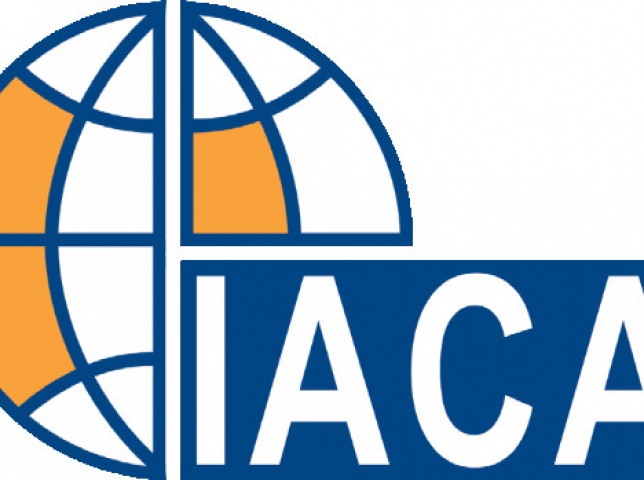
Does an actuary in your practice deserve to be truly recognised? Or do you wish tonominate one of your peers for an award? NOW IS THE TIME!

The Insurance Regulation Committee of the International Actuarial Association (the “IAA”) is pleased to inform you about a new freely available online publication called the Risk Book.

With this monthly publication we would like to inform you not only about the latest updates on the organizational progress and the scientific program, but also about interesting side facts and fun stories from the ICA team.

Ilmarinen, Porkkalankatu 1, Helsinki
Koneoppiminen ja neuroverkot: CTO Tuomas Ropponen Fimmic Oy:stä kertoo, miten syvät neuroverkot mullistavat syöpätutkimuksen ja patologian diagnostiikan.

14 December 2017 the Actuarial Association of Europe (“AAE”) announced the composition of the new Board of Directors.

The International Actuarial Association (IAA) is pleased to announce the publication of the discussion paper Climate Change and Mortality developed by its Resources and Environment Working Group.

1 December 2017 has finally arrived. After months of preparation, the registration for the 31st International Congress of Actuaries is now open! From 4 to 8 June 2018, the cream of actuarial expertise from around the world will meet in Berlin.

OP Vallila, Gebhardinaukio 1, Helsinki
Aktuaaritoiminnan kehittämissäätiön syysseminaarin aiheena on IFRS 17. Lisäksi seminaarissa muistetaan Teivo Pentikäistä ja hänen merkitystään suomalaisen vakuutuskentän kehityksessä.

Invitation to participate to the ASTIN Working Party on The PAA under IFRS 17
Webinars: End-of-Life Care in an Aging World, Valuation of Bermudan-DB-Underpin Option, Global Perspectives on Long-Term Care

With this monthly publication we would like to inform you not only about the latest updates on the organizational progress and the scientific program, but also about interesting side facts and fun stories from the ICA team.
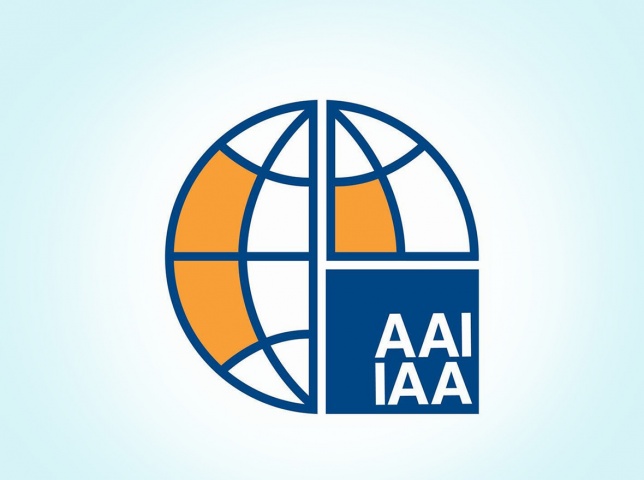
IAA has issued the October 2017 IAA Newsletter.

On 1 November 2017, IAIS, IAA and A2ii signed a five-year agreement at the IAIS Annual Conference in Kuala Lumpur, Malaysia to enhance the actuarial skills of supervisory authorities.

The new issue of The European Actuary (October 2017) is now available.

IAA Life Colloquium "Long-Term Saving in an Ageing World"
Webinars: IACA Webinar: The Role of Actuaries in Public Policy, Joint IAAHS/AAA Webinar: End-of-Life Care in an Aging World, IACA/PBSS Webinar: Valuation of Bermudan-DB-Underpin Option

With this monthly publication we would like to inform you not only about the latest updates on the organizational progress and the scientific program, but also about interesting side facts and fun stories from the ICA team.

EY, Alvar Aallon katu 5 C, Helsinki
Robert Lindblom, CEO and one of the founders of Entropics Asset Management AB, gives us a presentation on topic "Insurance-Linked Securities and Catastrophe Bonds"
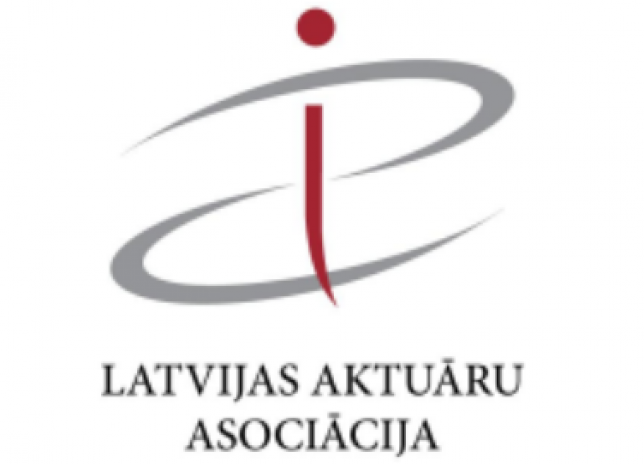
Save the date: Big Data seminar in Riga September 28- 29, 2017

We are pleased to announce that yesterday, Monday 25 September 2017, the AAE launched its new website.

Varma, Salmisaarenranta 11, Helsinki
EU:n tietosuoja-asetus. Telan johtava lakimies Outi Aalto tulee aukaisemaan EU:n tietosuoja-asetuksen kiemuroita ja vaatimuksia sekä yleisesti että aktuaarin töihin peilaten.

Vakavaraisuuden SHV-koe. Viimeinen ilmoittautumispäivä 20.8.2017

Our Autumn Lecture is an opportunity for thought leaders to share their insight on key issues. This year’s lecture takes a look at the uses of data science for actuaries and policy makers.

With this monthly publication we would like to inform you not only about the latest updates on the organizational progress and the scientific program, but also about interesting side facts and fun stories from the ICA team.

The Actuarial Association of Europe (“AAE”) announced today that it has adopted its third European Standard of Actuarial Practice, ESAP3, on “Actuarial practice in relation to the ORSA process under Solvency II”.

The AAE has today issued a Press Release on the European Commission’s proposal for an EU Regulation for a Pan-European Personal Pension (PEPP).

International Financial Reporting Standard (IFRS) 17—Insurance Contracts, has just been released.

With this monthly publication we would like to inform you not only about the latest updates on the organizational progress and the scientific program, but also about interesting side facts and fun stories from the ICA team.

With this monthly publication we would like to inform you not only about the latest updates on the organizational progress and the scientific program, but also about interesting side facts and fun stories from the ICA team.

The International Actuarial Association (IAA) is pleased to announce that it has recently published a paper on the Impact of Personalised Medicine and Genomics on the Insurance Industry which was developed by the Health Committee of the IAA.

Mandatum Life, Hietalahdenranta 9, Helsinki
Suomen Aktuaariyhdistys järjestää kolmannen kuolevuusseminaarinsa 23.5.2017. Seminaarissa esitellään ajankohtaisia kuulumisia ja tutkimustuloksia muun muassa kuolevuuden mallinnuksesta.

Kumpulan kampus, Gustaf Hällströmin katu 2 B, Helsinki
Näkökulmia sijoitussidonnaisesta henkivakuutuksesta Helsingin yliopiston Kumpulan kampuksella. Luennoitsijat: Lauri Saraste (LähiTapiola) ja Harri Nyrhinen (Helsingin yliopisto)

The Population Issues Working Group (PIWG) and the Mortality Working Group (MWG) of the IAA hosted a seminar on Current Developments in Aging and Mortality in conjunction with the IAA Council and Committee meetings in Budapest on 18 April 2017.

The International Actuarial Association (IAA) is pleased to announce the publication of the paper Long-Term Care — An Actuarial Perspective on Societal and Personal Challenges developed by its Population Issues Working Group (PIWG).

The new issue of The European Actuary (April 2017) is now available.

Varma, Salmisaarenranta 11, Helsinki
Petri Hilli (Sitra) kertoo sijoitusten hinnoittelusta ja pitkäikäisyydestä sekä yhtymäkohdista aktuaarimaailmassa tunnettuihin ilmiöihin. Jussi Nykänen (Epiqus) kertoo, miten SIB toimii käytännössä.

Aktuaaritoiminnan Kehittämissäätiö myöntää palkinnon vuonna 2017 valmistuneesta erityisen hyvästä SHV-työstä tai pro gradu -työstä, joka käsittelee vakuutusmatematiikkaa.

Ilmarinen, Porkkalankatu 1, Helsinki
Liikennevakuutuskeskuksen johtaja Janne Jumppanen kertoo uuden liikennevakuutuslain valmistelussa esille nousseista kysymyksistä.

The AAE has recently responded to several consultations.

Aktuaaritoiminnan Kehittämissäätiön tarkoituksena on tukea tutkimusta ja koulutusta aktuaarien toimialalla. Osana tätä toimintaa säätiö on myöntänyt palkinnot vuonna 2016 valmistuneista erityisen hyvistä SHV- ja pro gradu -töistä, jotka käsittelevät vak

Keva, Unioninkatu 43, Helsinki
Vuosikokousesitelmä: kyberturvallisuuden professori Jarno Limnéll (Aalto-Yliopisto): "Kyberturvallisuudessa on kyse luottamuksesta digitalisaation hyötyihin"

We would like to inform you about the publication of our 1st announcement including the Call for Papers.

The IRFRC invites high-quality research in insurance and actuarial science for its annual conference “New Applications of Actuarial Science in Managing Risks”. The IRFRC invites researchers to submit papers for presentation at this conference.

With this special edition of our newsletter, we would like to inform you about the release of our brand new 1st announcement including the Call for Papers and the detailed list of congress topics for the scientific program of ICA 2018.

In 2018, the German Actuarial Association, in conjunction with the International Actuarial Association, will be hosting the 31st International Congress of Actuaries in Germany.

With this monthly publication we would like to inform you not only about the latest updates on the organizational progress and the scientific program, but also about interesting side facts and fun stories from the ICA team.

With the beginning of 2017, the EAA CERA programme has been reduced from six to four separate modules. Please find below a short update about the CERA seminars 2017 organised by the EAA as well as the international exam dates and sites.

The Council of the IAA elected the following individuals to serve as Officers of the IAA:
President: Thomas S. Terry (United States)
President-Elect: Masaaki Yoshimura (Japan)
Immediate Past President: Malcolm Campbell (Sweden)

The International Actuarial Association (IAA) is pleased to announce the adoption of two new International Standards of Actuarial Practice (ISAPs) at its Council meeting held in Cape Town, South Africa on 21 November 2016.

This is to inform you that The European Actuary is now available at this link: http://www.theeuropeanactuary.org/

Finanssialan Keskusliiton (FK) varatoimitusjohtaja Esko Kivisaari on valittu EU-komission kestävän rahoituksen korkean tason asiantuntijaryhmään.

With this monthly publication we would like to inform you not only about the latest updates on the organizational progress and the scientific program, but also about interesting side facts and fun stories from the ICA team.

The AAE has published two papers: “Negative Interest Rates and their Technical Consequences” and “Required skills to be a good Risk Manager”

The AAE paper, “The ageing of the EU - implications for pensions” was shortlisted in the “Best Pensions Paper 2016 (Europe)” Award category.

The IAA has recently established two new working groups, on banking and big data. The Banking Working Group is chaired by Michael Tichareva from South Africa and the Big Data Working Group is chaired by Esko Kivisaari from Finland.
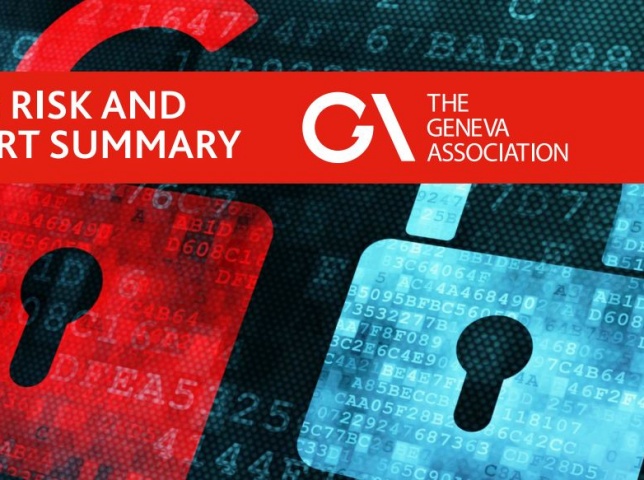
The report is intended as a ‘primer’ on cyber risk and cyber risk insurance for different stakeholders (academia, the insurance industry, governments and policymakers as well as the wider public).

The IRFRC invites high-quality research in insurance and actuarial science for its annual conference “New Applications of Actuarial Science in Managing Risks”. The IRFRC invites researchers to submit papers for presentation at this conference.
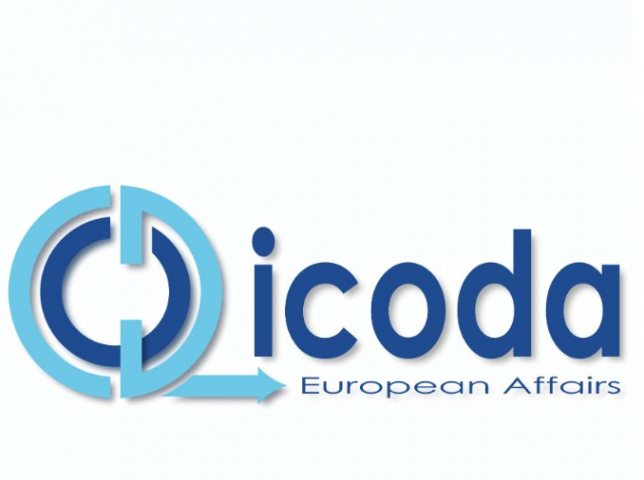
The fourth EU newsletter prepared by ICoda European Affairs exclusively for the AAE.

Tiedonjulkistamisen neuvottelukunta pyytää ehdotuksia tiedonjulkistamisen valtionpalkinnon saajiksi vuonna 2017 sekä yleisten kirjastojen ostotukilistalle vuonna 2017.

Two of the IAA’s Full Member Associations, the Institute and Faculty of Actuaries (IFoA) and the Society of Actuaries (SOA) have established a joint venture to develop the CAA (Certified Actuarial Analyst) qualification.

Tänään vietetään jo 15. kertaa Love Your Lawyer Day -päivää, jonka tarkoituksena on kunnioittaa lakimiesten arvokasta mutta usein aliarvostettua työtä.

With this monthly publication we would like to inform you not only about the latest updates on the organizational progress and the scientific program, but also about interesting side facts and fun stories from the ICA team.

On 1 November 2016, we welcomed Monique Schuilenburg as new employee of the Actuarial Association of Europe. Monique will act as Executive Assistant to the Chief Executive Officer.

IAA President Malcolm Campbell and members of the IAA’s Health Committee, Roseanne da Silva and Christelle Dieudonné, met with the World Health Organization (WHO) recently to discuss a range of issues where co-operation would be beneficial.

The AAE has issued a press release: AAE and IAA in Joint Discussion Forum with ILO and ISSA in Geneva

For the last 6 years, the IAA and the AAE have organized a discussion forum together with two important international bodies - the International Labour Organization (ILO), and the International Social Security Association (ISSA).

The new issue of The European Actuary (October 2016) is now available.

The Actuarial Association of Europe (“AAE”) announced today that Kristoffer Bork has been elected as the new Chairperson of the AAE for the year to September 2017.

IAA Supports Global Economic Initiative, Meet the Actuarial Society of South Africa, News from the Actuarial Standards Committee, News from the Education Committee etc.

Muistutuksena IAA:n kirjajulkaisuja:
Discount Rates in Financial Reporting - A Practical Guide
Stochastic Modeling – Theory and Reality from an Actuarial Perspective

The fourth EU newsletter prepared by ICoda European Affairs exclusively for the AAE.

The July 2016 edition of the AAE Chairperson’s report to member associations is now available.

The AAE has published the paper “The Roles of Actuaries under Solvency II”

Aktuaariyhdistyksen toimielimien edustajat kokoontuivat 9.6.2016 aloituskokoukseen, jossa käsiteltiin sääntöjen kokonaisuudistustyön taustoja, toimielinten tarkoitusta ja muutoksenhakuprosessia.

The International Actuarial Association (IAA) held its Council and Committee meetings in St. Petersburg, Russia, from May 25–29 at the invitation of the Russian Guild of Actuaries, one of its 68 Full Member associations.

The IAA is pleased to announce the release of its 2015 Annual Report.

Brysselissä pidettiin 21.-22.4. Euroopan aktuaariseminaari, jossa esillä oli erityisesti vakuutuksenottajien käyttäytyminen, data-analytiikka, aktuaarien roolien laajentaminen ja Euroopan taloustilanne.

Informal response to IASB Exposure Draft ED/2015/11 - Applying IFRS 9 Financial Instruments with IFRS 4 Insurance Contracts.

Aktuaaritoiminnan Kehittämissäätiö myöntää palkinnon vuonna 2016 valmistuneesta erityisen hyvästä SHV-työstä tai pro gradu -työstä, joka käsittelee vakuutusmatematiikkaa.

The third EU newsletter prepared by ICoda European Affairs exclusively for the AAE.

The April 2016 edition of the AAE Chairperson’s report to member associations is now available.
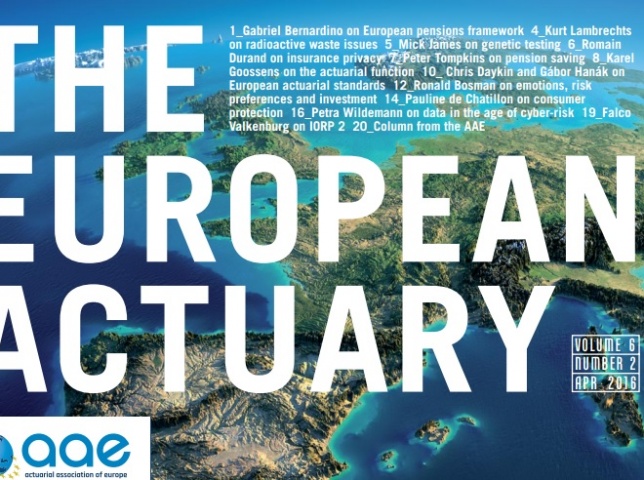
Please inform your members of this latest issue that can be found on the website of The European Actuary: www.the-european-actuary.org



Falco’s Blog
Falco Valkenburg: Chairperson of the Pension Committee of the Actuarial Association of Europe.


The second EU newsletter prepared by ICoda European Affairs exclusively for the AAE.
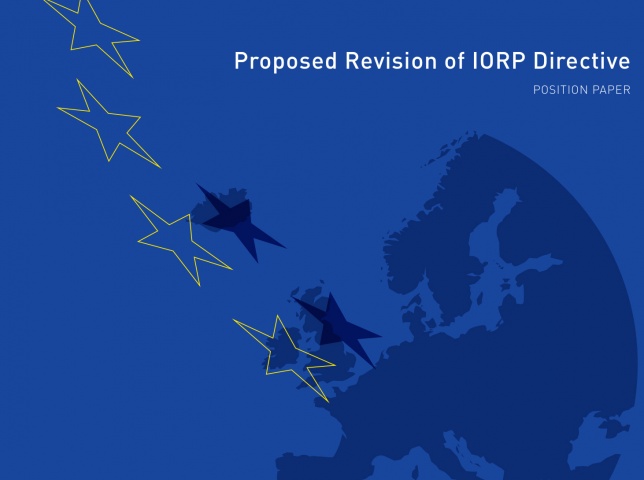
The Insurance Block Exemption Regulation (“IBER”) is a sector-specific legal instrument which allows (re)insurers to benefit from an exemption to the prohibition of anti-competitive arrangements laid down in Article 101(1) of the Treaty on the Function...
With this paper the AAE sets out its key comments on the Recitals of the proposal for revision as the Recitals contain the reasoning and provide the background to the proposed text of the formal Articles of the revised Directive.
The IBER is a sector-specific legal instrument which allows (re)insurers to benefit from an exemption to the prohibition of anti-competitive arrangements laid down in Article 101(1) of the Treaty on the Functioning of the European Union (“TFEU”).
Aika: pe 27.11.2015 klo 13.15 - 16.00
Paikka: Tieteiden talo, Kirkkokatu 6, Helsinki
IAA Supports Global Economic Initiative, Meet the Actuarial Society of South Africa, News from the Actuarial Standards Committee, News from the Education Committee etc.
Tervetuloa keskustelemaan ja kysymään tutkimuksen yhteiskunnallisesta vaikuttavuudesta, sen tärkeydestä, palkitsevuudesta ja arvioinnin haasteista

Lasse Koskinen, FT, on nimitetty vakuutustieteen professoriksi Tampereen yliopistoon elokuun alusta. Aktuaariyhdistys onnittelee Lassea nimityksen johdosta! http://www.uta.fi/hallinto/nimityksia.html
The International Actuarial Association (IAA) is pleased to announce the publication of the paper “Deriving Value from ORSA - Board Perspective” developed by the Joint ORSA Subcommittee of the IAA’s Insurance Regulation and Enterprise...
on the application of market consistency to pension funds in Europe
The theme this year is “Risk in Emerging Markets”. In addition to the conference’s theme on insurance risk in emerging markets, topics include longevity risk financing, actuarial science and insurance economics.
The International Actuarial Association (IAA) adopted its third International Standard of Actuarial Practice (ISAP 3) on actuarial practice in relation to IAS 19 Employee Benefits, at its Council meeting held in Zurich, Switzerland on 11 Ap...
Verkkokysely tutkijoiden asiantuntijaroolissaan kokemasta häirinnästä on julkaistu Minkälaista on esiintyä asiantuntijana julkisuudessa? Oletko saanut vihapostia? Kokenut häirintää? Uhkailua? Onko sinua painostettu vaikenemaan? Tai ...
ACTEX Publications, an actuarial education company based in the U.S., publishes textbooks and study guides for the practicing and student actuary and offers online continuing education and exam preparation. Here is a link to the current cat...
Paras työ!
Please inform your members of this latest issue that can be found on the website of The European Actuary: www.the-european-actuary.org
Please make sure to safe your place at the early-bird rate of € 790.00 plus 25% VAT which is valid until 6 April 2015 only. After this date the fee will be € 970.00 plus 25% VAT.
Standards, Freedoms & Professionalism Committee; Insurance Committee Membres titulaires; Secretariats; Solvency II project team The agenda and papers for the forthcoming meetings in Paris of the Standards, Freedoms and Professionalism Commi...
Den Norske Aktuarforening has been given the honour of organizing a joint colloquium for three of the sections of IAA 7-10 June 2015 in Oslo. The three sections are IAALS (IAAs Life Section), PBSS (Pension Benefits and Social Security) and ...
” The IFoA host seven residential conferences every year, each one specifically tailored to provide essential information and significant hot topics to delegates from each practice area. We aim to provide unparalleled learning, developmen...
Your attention is drawn to a Seminar on “A Benchmark Approach to Investing, Pricing and Hedging” which is being organised in Vienna on 29-30 April through the Austrian association. Details are available from the Forthcoming Events secti...
The AAE will organise its first webinar on Friday 17 April 2015 from 11:00 – 12:30 CET. The subject for this webinar will be the current status of Solvency II: “Solvency II: where are we now – where are we going”. The presentations ...
The intent to provide a formal response from the IAA to The International Association of Insurance Supervisors (IAIS) public consultation on the Risk-based Global Insurance Capital Standard was announced on 5 January 2015. The response was ...
Don’t miss the opportunity to present at the Actuaries Institute’s premier event – the 2015 ASTIN, AFIR/ERM and IACA Colloquia, to be held in Melbourne on Sunday 17 May and Tuesday 19 May 2015. The theme for the Summit is Innovation a...
Singapore, 25 - 26 June 2015 The Insurance Risk and Finance Research Centre invites high-quality research in insurance and actuarial science for its annual conference. The theme of this year’s conference is “Risk in Emerging Markets”....
10 - 14 August 2015, University of Lausanne Attendance at an International Summer School of the Swiss Association of Actuaries will provide 20 CPD credits to Fully Qualified Members of the SAA.
Den Norske Aktuarforening invites you to attend the Colloquium of the International Actuarial Association to be held in Oslo, Norway, from the 7th to the 10th of June 2015. The colloquium is a joint collaboration of the three IAA sections P...
Call for papers: Insurance Risk & Finance Research Conference (IRFRC) 2015 Singapore, 25 - 26 June 2015 The Insurance Risk and Finance Research Centre invites high-quality research in insurance and actuarial science for its annual conferenc...
Call for papers: Insurance Risk & Finance Research Conference (IRFRC) 2015 Singapore, 25 - 26 June 2015
Following up on the Council meeting in London on September 13, please visit the below link to access the slides that were presented at Council; the results of votes taken and agreed actions appear in red font. Please feel free to share thes...
Suomen Aktuaariyhdistyksen lokakuun kuukausikokous pidetään keskiviikkona 1.10. klo 16:00 Haikon kartanossa.
SHV-tutkintovaatimuksiin kuuluu Henkivakuutusmatematiikka (Helsingin yliopiston kurssi tai sisällöltään vastaava). Helsingin yliopiston kurssin keskeisenä kirjana on ollut Henkivakuutusmatematiikka (Martti Pesonen, Pentti Soininen ja T...
FT Vesa Ronkainen on nimitetty johtavaksi asiantuntijaksi ja sisäisten mallien osaamiskeskuksen vetäjäksi EIOPAan. Vesa on ensimmäinen suomalainen EIOPAssa. Vuosina 2003 - 2004 Vesa toimi kansallisena asiantuntijana komission vakuutusyk...
International Actuarial Association | Association Actuarielle Internationale The June 2014 issue of the IAA Newsletter is now available! CLICK HERE TO DOWNLOAD
Aiheena Globaali vakavaraisuusstandardi
Aiheena viimeisimpiä SHV-töitä
1.10 Kuukausikokous (AAE:n vuosikokouksen yhteydessä). Haikon Kartano, n. klo 15 – 22. Aihe ilmoitetaan myöhemmin, puhujia AAE:n puolelta.
The 2nd European Actuarial Journal (EAJ) Conference (Vienna, September 10-12, 2014) is an international conference in actuarial science and insurance mathematics. The aim is to bring together practicing actuaries and academics to discuss ab...
Ruotsalainen aktuaari Stig Rosenlund on kehittänyt 30 vuoden ajan vahinkovakuutuksen laskentatarpeisiin tarkoitettua ohjelmointikieltä (”Rapp”, Reserve and Price Program). Kieli on tarkoitettu esimerkiksi tariffianalyysien ja vastuuve...
Linkki: https://uta.rekrytointi.com/paikat/?o=A_RJ&jid=380
27th International Summer School of the SAA (2014) Topic: Life Insurance and Pension Risk Management Teachers: Prof. Jochen Wolf and Prof. An Chen Location: University of Lausanne, Switzerland Dates: 11-15 August 2014 The web site ( www.saa...
SAY:n kuukausikokousasiat sekä jäsenkyselyn tulokset. Ilmoittautumisaika 10. - 17.5.2014 (ilmoittautuminen alkaa lauantaina 10.5.) Ilmoittaudu Aktuaariyhdistyksen kotisivuilla www.actuary.fi Valitse aluksi Yhdistys ja Kokoukset. Ilmoittau...
2nd European Actuarial Journal (EAJ) Conference and Educational Workshop (Vienna, September 8-12, 2014) http://www.fam.tuwien.ac.at/eaj2014/ Organised by the Actuarial Association of Austria and the Vienna University of Technology.

Kansainvälinen aktuaarikongressi pidettiin 30.3 - 4.4.2014 Washingtonissa, USA:ssa. Kongressiin osallistui yhteensä n. 1350 henkilöä, joista suomalaisia n. 30. Kongressiohjelma löytyy osittain ICA2014 kotisivuilta (http://www.ica2014.o...
Liitteenä kokouspöytäkirja ja käsitellyt asiat.
Aiheena on ’matalan korkotilanteen vaikutus vakuutustoimintaan’ ja sitä tulee kolme puheenvuoroa: 1. Markkinanäkökulma. Mikael Simonsen, Nordea Markets 2. Valvojan näkökanta. Jari Niittuinperä, Finanssivalvonta 3. Vakuutusyhtiön ...
http://www.nbs.ntu.edu.sg/Faculty_Research/Research_Centres/IRFRC/Pages/Events.aspx
Ilmoittaudu Aktuaariyhdistyksen kotisivuilla www.actuary.fi Valitse aluksi Yhdistys ja Kokoukset. Ilmoittautumiskaavake aukeaa klikkaamalla Vuosikokouksen kohtaa "ilmoittaudu" viimeistään 17.2.2014
EAA (European Actuarial Academy) ja Suomen Aktuaariyhdistys järjestävät seminaarin aiheesta "Risk Management in Life Insurance and Variable Annuities” 7.–8.4.2014 Helsingissä.
LähiTapiola, Revontulenkuja 1, Espoo
Aktuaariyhdistys on kuukausikokouksessaan 11.12.2013 hyväksynyt yhdistyksen SHV-jäsenten uudet eettiset säännöt. Samalla yhdistyksen kokous teki päätöksen, että eettisten sääntöjen kohdassa 3.2 mainittuna aktuaarien oikeusturval...
Katsaus kansainvälisistä työryhmistä
tarkemmat tiedot: www.ica2014.org
"Vuoden 2005 eläkeuudistuksen vaikutus eläkkeelle siirtymiseen". Roope Uusitalo, Professori ja tutkimusjohtaja, Helsingin taloustieteellinen tutkimuslaitos Kommenttipuheenvuoro: Hannu Uusitalo, johtaja, Eläketurvakeskus
Oletko sinä yhtiösi operatiivinen riski? - Operatiiviset riskit vakuutusalalla
Micro Simulation Study of Life Insurance Business Saraste L, Salminen T, Koskinen L. Esitelmässä käydään läpi tutkimuspaperia, joka valmistui kesän 2013 IAA:n kollokvioon (http://www.actuaries.org/lyon2013/papers/LIFE_Saraste_Salmine...
Seminaari on osa aktuaarien täydennyskoulutusohjelmaa, ja se soveltuu hyvin myös SHV-tutkintoa suorittaville ja muille aktuaaritoiminnoissa toimiville. Kaikki ovat tervetulleita, mutta kahvitarjoilun ja kirjojen hankkimisen vuoksi pyydäm...
Jyri Liukko: Vakuutusajattelun muutos ja riskiluokittelun oikeudenmukaisuus Esitelmässä käydään läpi vakuutusmaailman asiantuntijoiden ajattelutapojen muutosta ja erityisesti riskiluokitteluun liittyviä kysymyksiä. Tarkastelun kohte...
Kuolevuuden matemaattisia malleja / Tanskan Finanssivalvonnan käytännöt kuolevuusriskin valvonnassa. Kaikki ovat tervetulleita, mutta kahvitarjoilun vuoksi pyydämme ennakkoilmoittautumista. Ilmoittautumiset 18.4.2013 mennessä: Ilmoitta...
Tampereella järjestetään toukokuussa kovatasoinen konferenssi suurteholaskennasta rahoitusriskien hallinnassa ja johdannaishinnoittelusta ja tapahtuman puhujat pääosin eurooppalaisesta finanssi- ja laskentateknologiateollisuudesta. Kon...
Kuolevuusseminaari 9.4 klo 14.00 - 16.30 (Ilmarinen, Porkkalankatu 1) Väestöennuste ja kuolevuus / Suomalaisia väitöskirjoja kuolevuudesta Kaikki ovat tervetulleita, mutta kahvitarjoilun vuoksi pyydämme ennakkoilmoittautumista. Ilmoitt...
Tässä vielä Suomen aktuaariyhdistyksen kuukausikokouksen 19.3 esityslista, jossa tarkennuksena edelliseen: • Kokous alkaa kello 15 (päättyy n. klo 17) • Kokouksessa käsitellään toisen kerran nyt vuosikokouksessa käsitelty sää...
Call for papers and early-bird registration open. More information www.actuaries.org/lyon2013.
Tervetuloa Suomen Aktuaariyhdistyksen keväällä 2013 järjestämään kuolevuus-seminaarisarjaan. Ne pidetään kuukausikokousten 19.3. ja 24.4. yhteydessä sekä erillisellä tilaisuudella 9.4. Tilaisuuksien vetäjänä toimii Finanssiva...
Ilmoittautumiset 21.2.2013 mennessä: Ilmoittaudu Aktuaariyhdistyksen kotisivuilla www.actuary.fi Valitse aluksi Yhdistys ja Kokoukset. Ilmoittautumiskaavake aukeaa klikkaamalla Vuosikokouksen kohtaa "Ilmoittaudu".
First Announcement 26th International Summer School of the SAA (2013) Topic: Enterprise Risk Management Teachers: Prof. Stéphane Loisel and David N Ingram, CERA, FRM, PRM, FSA, MAAA Location: University of Lausanne, Switzerland Dates: 3-7 ...
The Institut des actuaires kindly invites you to attend the Colloquium of the International Actuarial Association to be held in Lyon, France, from the 24th to the 26th of June 2013. This colloquium is a joint collaboration of three IAA sect...
The Institut des actuaires kindly invites you to attend the Colloquium of the International Actuarial Association to be held in Lyon, France, from the 24th to the 26th of June 2013. This colloquium is a joint collaboration of three IAA sect...
SEMINAR INVITATION Evaluation of the Finnish Pension System 7 January 2013, 1-4:30 p.m. at Pörssitalo, Fabianinkatu 14, Helsinki An international and independent evaluation of the Finnish pension system has been completed. The evaluation w...
The Actuarieel Genootschap (Dutch Actuarial Society) will be hosting the ASTIN Section Colloquium in The Hague, in conjunction with the IAA Council & Committee meetings and a joint IAA/Groupe Consultatif Education Seminar. Lisätietoja: htt...
Aiheena on "Euroopan finanssimarkkinat myllerryksessä – strategiat uusiksi?".
Minustako AKTUAARI? Mitä kaikkea matemaatikko voi tehdä vakuutus- ja finanssialalla?
EAA (European Actuarial Academy) ja Suomen Aktuaariyhdistys järjestävät seminaarin aiheesta "Stochastic Modeling - Theory and Reality from an Actuarial Perspective" 27.-29.11.2012 Helsingissä.
EAA (European Actuarial Academy) ja Suomen Aktuaariyhdistys järjestävät seminaarin aiheesta "Stochastic Modeling - Theory and Reality from an Actuarial Perspective" 27.-29.11.2012 Helsingissä.
Euroopan finanssimarkkinat myllerryksessä - strategiat uusiksi?
Minustako AKTUAARI? Mitä kaikkea matemaatikko voi tehdä vakuutus- ja finanssialalla?
5 Jun 2012 09:00-12:30 Scandic Anglais, Stockholm and 6 Jun 2012 09:00-12:30 Radisson Blu Royal Hotel, Helsinki
Three of the IAA Sections (ASTIN, AFIR/ERM and IAALS) in collaboration with the Mexican actuarial associations (Colegio Nacional de Actuarios A. C., Asociación Mexicana de Actuarios and Asociacion Mexicana de Actuarios Consultores) will be...
AKTUAARIT ARVOSTETTUJA Amerikkalaiset sen tietävät ja osaavat arvostaa aktuaarin ammattia. Lähelle pääsevät myös matemaatikko sijalla 10 ja tilastotieteilijä sijalla 18. Katso tutkimusta oheisesta linkistä (kopioi linkki selaimeen)...
A Saturday on Solvency in Turku The Department of Mathematics at Åbo Akademi University, The Finnish Doctoral Programme in Stochastics and Statistics and The Open University at Åbo Akademi University offer lectures on solvency on Saturday...
The Groupe Consultatif Actuariel Européen is organising the first European Congress of Actuaries in Brussels on 7 and 8 June, which will unveil how actuaries are looking at the financial crisis and what advice these professionals provide, ...
Suomen Aktuaariyhdistyksen vuosikokoukssa Matti Ruohonen ja Markku Miettinen pitävät esitelmän aiheesta Tasoitusmääräjärjestelmän sopeuttaminen solvenssi II -ympäristöön. Solvenssi II säädösten tullessa aikanaan voimaan Suomes...
Please note that the Groupe Consutatif’s website now includes a “Groupe News and Press Releases” section where activities by the Groupe in the form of press releases, written contributions, presentations, reports, speeches etc can be ...

The Groupe Consultatif Actuariel Européen is organising the first European Congress of Actuaries in Brussels on 7 and 8 June, which will unveil how actuaries are looking at the financial crisis and what advice these professionals provide, ...
The Salzburg Institute of Actuarial Studies is pleased to be sending out information for the course on International Accounting of Insurance Companies taking place at Salzburg University in from 11th to 14th April 2012. The course aims to i...

Viitetidostossa on Gabor Hanakin, Groupe Consultatifin uuden puheenjohtajan, haastattelu. Groupe Consultatif valitsi lokakuussa neljä uutta puheenjohtajaa, joiden kaikkien haastattelut tullaan julkaisemaan lähitulevaisuudessa.
Eläkkeellä oleva aktuaari Kyösti Poutiainen, joka ennen eläkkeelle siirtymistään on ollut aktuaariyhdistyksen jäsenen, on voittanut 10-ottelun maailmanmestaruuden ikäluokassa 70. Mestaruus tuli kesällä veteraanien MM-kisoissa Sacr...
EAA (European Actuarial Academy) ja Suomen Aktuaariyhdistys järjestävät seminaarin aiheesta "Internal Models in Solvency II". Seminaari järjestetään 26-28.10.2011 Helsingissä.

Reilut parikymmentä eurooppalaista aktuaaria kokoontui perjantaina 25.3. Varman toimitiloihin Salmisaareen Groupe Consultatifin pitäessä Pensions ja Investment and Financial Risk management -komiteoiden kokoukset Helsingissä. Suomen Akt...

Suomen Aktuaariyhdistys ry:n varsinaisessa vuosikokouksessa 28.2.2011 uusiksi hallituksen jäseniksi valittiin Jari Sokka ja Lauri Saraste. Lisäksi vuosikokous päätti puheenjohtajistostaan. Hallituksen puheenjohtajaksi vuon...

